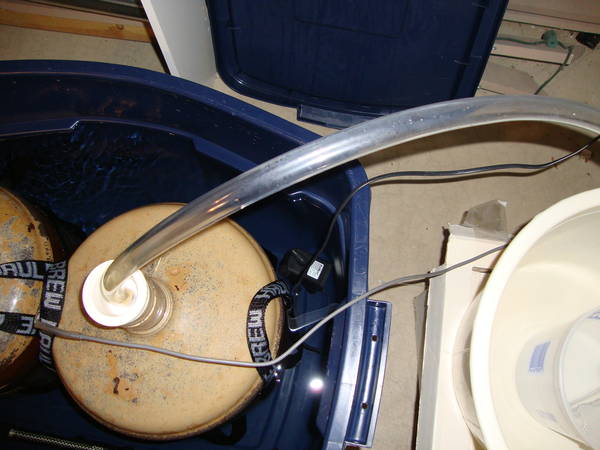brewzombie
Well-Known Member
I just made a fermentation water bath from 165 qt cooler, an IceProbe aquarium chiller, and a ranco temp controller (and thermowell). The cooler can fit 2 plastic primaries (all I ever use) and maybe a yeast starter. I'm testing it now and it seems to work; no leaks, temp is really stable and the chiller kicks in when it should.
My question is will the water bath start to stink from mold/mildew after awhile? Should I be treating the water like you would for a hot tub or something? Maybe this never comes up unless you drip some organic crap in the water (but it seems inevitable to me).
My question is will the water bath start to stink from mold/mildew after awhile? Should I be treating the water like you would for a hot tub or something? Maybe this never comes up unless you drip some organic crap in the water (but it seems inevitable to me).











































![Craft A Brew - Safale BE-256 Yeast - Fermentis - Belgian Ale Dry Yeast - For Belgian & Strong Ales - Ingredients for Home Brewing - Beer Making Supplies - [3 Pack]](https://m.media-amazon.com/images/I/51bcKEwQmWL._SL500_.jpg)















